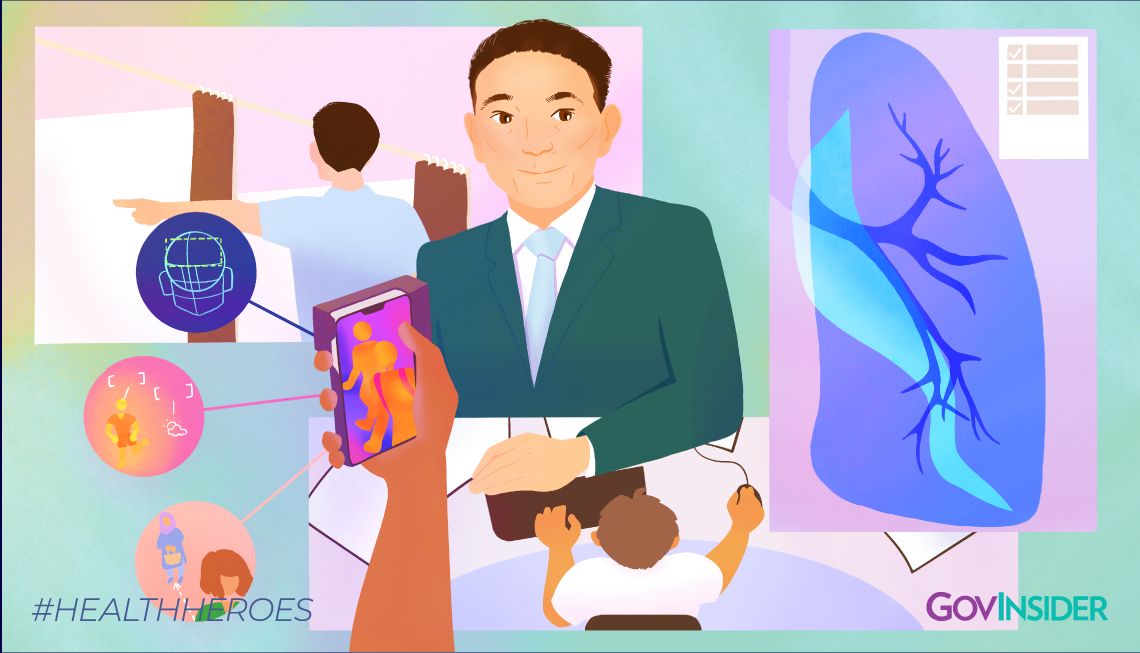#HealthHeroes: Bruce Liang, CEO, Integrated Health Information Systems (IHiS), Singapore
By Yun Xuan Poon and Joy Lim
#HealthHeroes.

Illustrations by Joy Lim.
The agency was much in the newspapers in the past few years. A well-publicised cyber attack on the SingHealth hospital in 2018 left patient records vulnerable and caused a national enquiry across the sector. It’s testament to the leadership of Liang and his team that the agency has rebounded and left an outsized legacy in fighting against the 2020 pandemic.
IHiS has become one of the frontline heroes of Singapore’s Covid-19 response. It helmed tech innovations that helped doctors combat the virus, and boosted national efforts to contain the spread. The organisation has been involved in projects all the way from setting up rapid quarantine facilities, to building AI temperature scanning devices, and centralising the country’s swab test results.
Bruce Liang, CEO of IHiS, is the man who led the 2700-strong organisation through a national crisis. “Technology has been a crucial enabler in every stage of our fight against Covid-19,” he said in a press release earlier this year.
Back in April, IHiS formed part of the core team that set up a Covid-19 community care facility in just five days. How did they do it so quickly? The crew adapted software used in general clinics to register incoming patients, track their vital signs, and enter and review clinical notes.
These records are shared with other hospitals through the national electronic health records system. If any isolated patients are transferred to a new facility, the new medical teams would have access to their medical history.
To optimise manpower, IHiS engineers created vital signs monitoring toolkits for patients at the facility to monitor their own temperature. They also implemented remote monitoring kits for patients’ blood oxygen level - a key indicator of patients’ health.
IHiS was behind the tagging system for staff and equipment at the National Centre for Infectious Diseases’ Covid screening centre. This helped to manage load and keep staff safe. The Centre also uses analytics to predict bottlenecks and ensure there’s a ready supply of personal protective equipment and Covid-19 medication.
The agency worked with hospitals and healthtech startups to build tools to reign in the spread of the coronavirus. These include an AI temperature scanning device, and an AI tool that could predict pneumonia severity from x-ray scans.
From boosting quarantine efforts to helping hospitals cope with the increased healthcare demand, IHiS’s healthtech innovations and quick response have allowed the nation to pivot in a public health crisis.